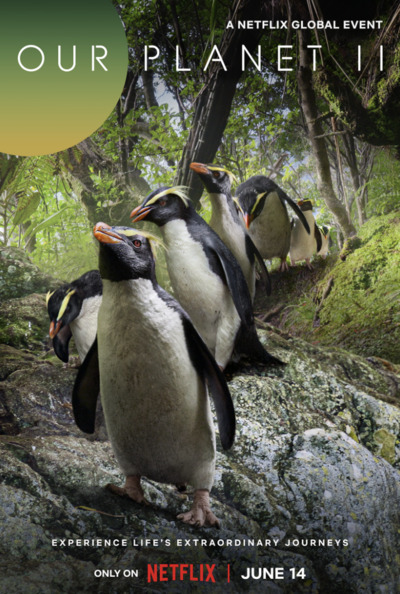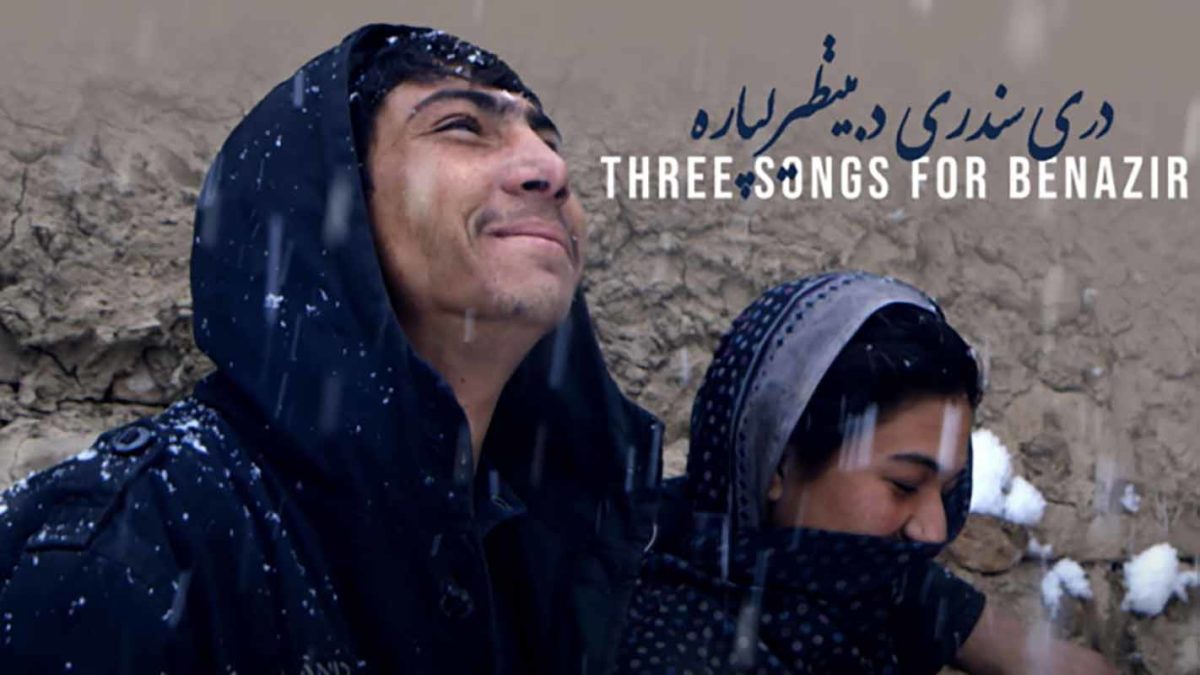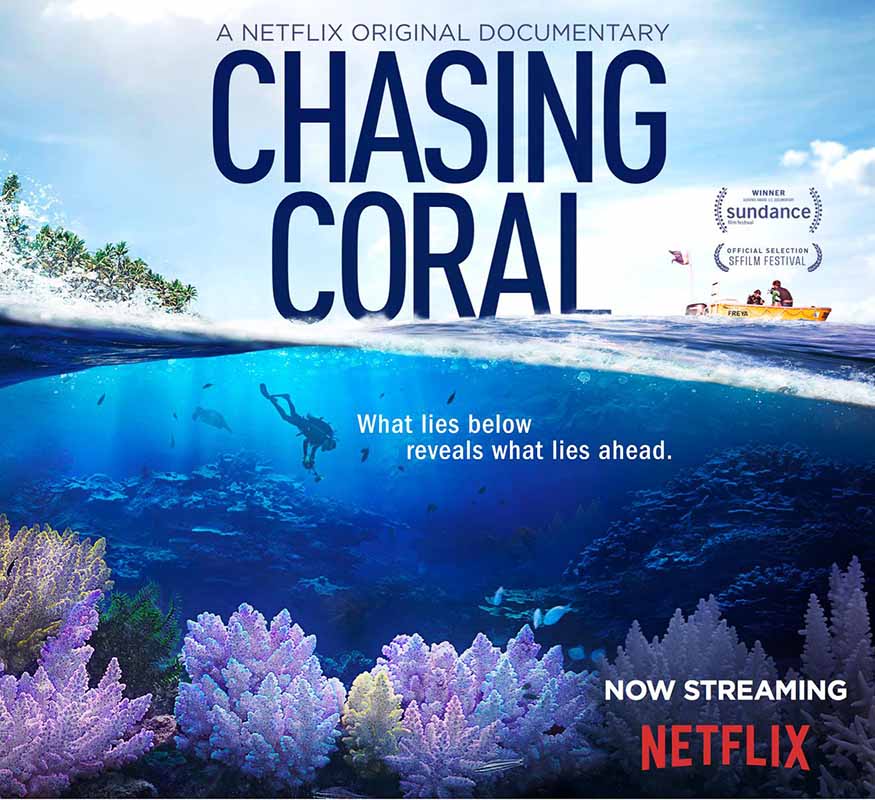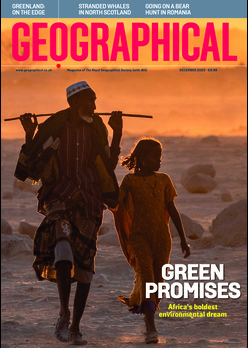
Six must-watch Netflix documentaries for geography lovers in 2023
By Becky Broyd

Our Planet 2 (2023)
In the highly anticipated sequel to the groundbreaking nature documentary series, “Our Planet 2” takes viewers on an awe-inspiring journey through Earth’s diverse ecosystems, capturing the beauty and fragility of our planet like never before. With breathtaking cinematography and expert storytelling, this mesmerizing Netflix series offers an unflinching look at the challenges our planet faces today, while also providing a glimmer of hope for a sustainable future. From the depths of the oceans to the vast expanses of pristine wilderness, David Attenborough’s new show is just magical and immerses audiences in the wonders of the natural world, serving as a powerful reminder of the urgent need for conservation and collective action.
A must see – you can view the Geographical trailer of Our Planet 2 here

Chimp Empire (2023)
Experience the captivating lives of chimpanzees in “Chimp Empire,” this riveting Netflix documentary series. Delve into their intricate social dynamics, witness their intelligence and emotional depth, and gain a deeper appreciation for the importance of conservation. Through stunning visuals and expert narration, “Chimp Empire” reveals the remarkable world of these primates and underscores the urgent need to protect their habitats for a sustainable future.
The filmmakers’ unwavering commitment to capturing the raw beauty and intricate complexities of these primates ensures an authentic and enlightening experience for viewers. Through their artistry and dedication, they bring the world of “Chimp Empire” to life, allowing audiences to connect with these incredible creatures.

Sherpa (2015)
Climbing Mount Everest may be the dream of many an adventurer looking to push themselves to the limit, but for some Sherpa people, it’s simply a day job – albeit one with considerable risks. Jennifer Peedom’s film demonstrates the integral part Sherpas play in the mountaineering industry in Nepal and the sacrifices they make. After the 2014 tragedy on Everest, in which 16 Sherpas died in an icefall while preparing the route for Westerners to climb, tensions between Sherpas, their employers, the government and foreigners heightened. Both terrain and relationships remain treacherous. The film aims to increase respect for these people who help fulfil the dreams of others. Often heart-wrenching, it depicts the fight for better working conditions and offers an eye-opening account of the complexities of the Everest tourism industry.

Three songs for Benazir (2021)
This Academy-nominated short film follows a young Afghan man, Shaista, depicting his struggle to balance caring for his family with his ambition to join the Afghan National Army. Living in a displacement camp in Kabul and unable to return to his village, Shaista wants to make something of his life and stop working on the notorious opium farms. Having built up a friendship with both Shaista and his wife Benazir over many years, directors Elizabeth and Gulistan Mirzaei are able to provide an intimate portrait of the couple and the difficult choices they must make. Filmed before the Taliban takeover of Afghanistan, it remains a moving and insightful watch.

Kiss the Ground (2020)
Kiss the Ground offers an optimistic, solutions-driven view of climate change. Narrated by Woody Harrelson, the film presents soil as the missing piece in the climate puzzle, highlighting the vital importance of this overlooked component of our ecosystems. It delves into regenerative farming and permaculture, examining the huge pressure placed on farmers today and the cost of industrial-scale agriculture. The film aims to educate and encourage participation in a more sustainable future for food production.

Lead me Home (2021)
A poignant examination of the housing crisis impacting Americans on the West Coast of the USA, Lead Me Home follows the lives of several homeless people, demonstrating that anyone can end up on the streets. The country’s vast disparity in wealth is fully on display, while plainly shot interviews lay bare a reality America doesn’t want to confront.

Chasing Coral (2017)
Jeff Orlowski’s film zooms in on the phenomenon of coral bleaching, yet another complicated cog in the never-ending wheel of climate change and global warming and its impact on our oceans in dire need for protection. By following an expert team of divers, photographers and scientists on a mission to discover why corals are vanishing at an unprecedented rate, this visually striking documentary demonstrates the far-reaching effects of climate change in our oceans while offering a stark warning of what’s to come if we continue as we are.

Virunga (2014)
Virunga provides a raw account of the ways in which money, greed and violence can impact nature. Combining investigative reporting and nature documentary, it follows the rangers risking their lives to protect Virunga National Park in the eastern Congo along with its most famous inhabitants – the last remaining mountain gorillas. When the filmmakers become caught up in conflict, promoted by the M23 rebel group declaring war, things take a turn for the dramatic, plunging the park and its protectors into yet more peril.




